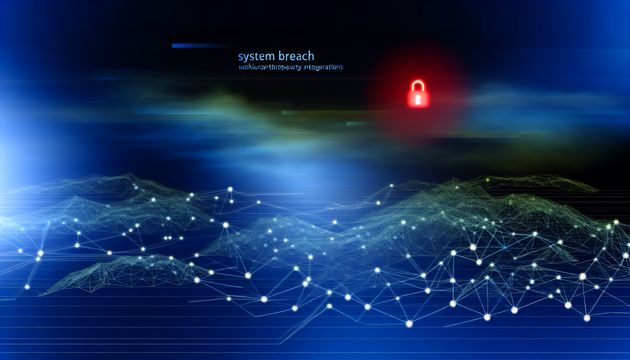
Sina Gholinejad's Guilty Plea in RobbinHood Ransomware Case
Sina Gholinejad, an Iranian national, has admitted his role in the notorious RobbinHood ransomware attacks, which wreaked havoc on several U.S. cities and organizations. These attacks, characterized by their sophisticated techniques, resulted in significant disruptions and financial losses. The U.S. Department of Justice reported that Gholinejad and his co-conspirators used advanced methods to infiltrate networks, encrypt data, and demand ransoms in Bitcoin. This plea, entered in a North Carolina federal court, underscores the global reach of cybercrime and the challenges faced by law enforcement in tracking and prosecuting such offenses. The case highlights the critical need for enhanced cybersecurity measures and international cooperation to combat these threats effectively.
The Guilty Plea of Sina Gholinejad
Background and Context of the Guilty Plea
Sina Gholinejad, an Iranian national, has pleaded guilty to charges related to his involvement in the RobbinHood ransomware attacks. These attacks targeted various U.S. cities and organizations, causing significant disruptions and financial losses. According to the U.S. Department of Justice, Gholinejad, along with his co-conspirators, used sophisticated techniques to breach networks, encrypt data, and demand ransoms in Bitcoin. The plea was entered in a North Carolina federal court, where Gholinejad admitted to conspiracy to commit fraud, computer intrusion, extortion, and money laundering.
Legal Implications and Charges
Gholinejad faces a maximum penalty of 30 years in prison for his crimes. The charges include computer fraud and abuse, conspiracy to commit wire fraud, and other related offenses. The indictment outlines how Gholinejad and his conspirators used virtual private servers, VPNs, and cryptocurrency mixers to evade law enforcement, complicating efforts to track and prosecute them. The plea agreement highlights the severity of the crimes and the U.S. government’s commitment to holding cybercriminals accountable, regardless of their location.
Impact on Victims and Financial Losses
The RobbinHood ransomware attacks caused tens of millions of dollars in losses and disrupted essential services in various cities. Notably, the City of Baltimore suffered significant damage, with over $19 million in losses due to the attack. The ransomware encrypted thousands of city computers, affecting services such as property tax processing, water billing, and parking citations. The City of Greenville, North Carolina was another major victim, highlighting the widespread impact of these cyberattacks on municipal governments.
Technical Methods and Evasion Tactics
Gholinejad and his co-conspirators employed various technical methods to carry out their attacks and evade detection. They used virtual private networks and servers to gain unauthorized access to victim networks, where they deployed the RobbinHood ransomware. According to the FBI, the conspirators also utilized cryptocurrency mixing services and chain-hopping to launder ransom payments, making it difficult for authorities to trace the funds. These sophisticated techniques underscore the challenges law enforcement faces in combating cybercrime.
Broader Implications for Cybersecurity
The guilty plea of Sina Gholinejad has broader implications for cybersecurity and the fight against ransomware. The case demonstrates the need for enhanced cybersecurity measures and international cooperation to combat cybercrime. As noted by the Justice Department, these attacks are not victimless crimes; they directly impact communities and disrupt essential services. The case also highlights the importance of public-private partnerships in strengthening defenses against ransomware and other cyber threats.
Future Legal Proceedings and Sentencing
Gholinejad is scheduled to be sentenced in August, where a federal district court judge will determine his sentence based on the U.S. Sentencing Guidelines and other statutory factors. The outcome of this case will likely serve as a precedent for future prosecutions of cybercriminals, emphasizing the seriousness of such offenses and the potential consequences for those involved. The Department of Justice has made it clear that it will continue to pursue cybercriminals aggressively, regardless of their location, to protect U.S. interests and maintain the integrity of its digital infrastructure.
Final Thoughts
The guilty plea of Sina Gholinejad serves as a stark reminder of the pervasive threat posed by ransomware attacks. The RobbinHood case, with its significant financial impact on cities like Baltimore and Greenville, illustrates the urgent need for robust cybersecurity defenses and international collaboration. As the Justice Department continues to pursue cybercriminals, this case sets a precedent for future prosecutions, emphasizing the seriousness of such crimes. The evolving landscape of cyber threats demands vigilance and proactive measures to protect digital infrastructure and maintain public trust.
References
- U.S. Department of Justice. (n.d.). Iranian man pleaded guilty to role in RobbinHood ransomware. https://www.justice.gov/opa/pr/iranian-man-pleaded-guilty-role-robbinhood-ransomware
- BleepingComputer. (n.d.). Iranian pleads guilty to RobbinHood ransomware attacks, faces 30 years. https://www.bleepingcomputer.com/news/security/iranian-pleads-guilty-to-robbinhood-ransomware-attacks-faces-30-years/
- Wikipedia. (n.d.). 2019 Baltimore ransomware attack. https://en.wikipedia.org/wiki/2019_Baltimore_ransomware_attack



